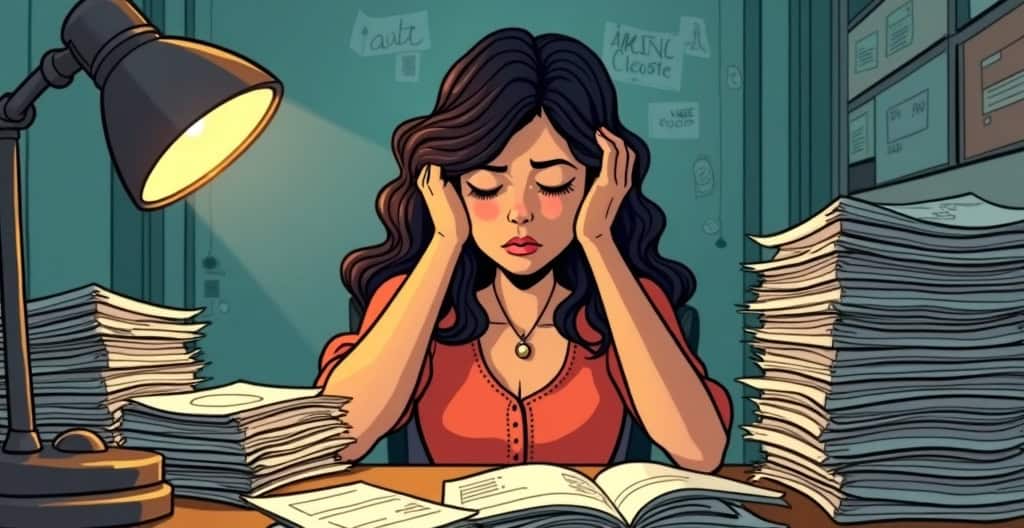
🔎 Disclosure: Heads up, babe: some links here are affiliate links, which means you might throw a tiny commission my way if you buy (zero extra cost to you). Only things you’d actually use and love get shared on this site.
1. Relying Too Much on Credit Cards
You know that feeling when your card feels like an endless wallet? Yeah, that’s the trap.
When you rely on credit cards for everything, you’re basically renting your lifestyle. with interest.
Here’s what happens when those swipes add up:
- You lose track of what you actually spend because it doesn’t feel like real money.
- You build habits that depend on debt instead of budgeting.
- You pay more for the same things once the interest kicks in.
👉 Here's How You'll Do It: Start using your debit card or cash for daily spending.
Make It Easy: Consider a small cash envelope wallet to separate spending categories and visually track your money.
2. Only Paying the Minimum Balance
Paying the minimum feels safe… until you realize you’re just feeding the bank interest forever.
You end up stuck in a loop that barely dents your actual balance. like treading water with bricks tied to your ankles.
Here’s what this habit really does:
- Keeps you in debt longer because most of your payment covers interest, not the balance.
- Wastes money you could’ve used on your family or goals.
- Hurts your credit score by keeping your utilization high.
👉 Here's How You'll Do It: Start rounding up every payment. iIfthe minimum is $85, pay $100 or more to break the cycle faster.
3. Ignoring High-Interest Rates
High-interest debt is like that one friend who “borrows” your stuff and never gives it back. It drains you slowly.
If you don’t face your interest rates head-on, you’re losing money every single month without realizing it.
You’ll notice a huge difference when you finally prioritize them:
- You save more by attacking the most expensive debts first.
- You feel progress faster when you see balances actually shrinking.
- You regain control because you’re being strategic, not emotional.
👉 Here's How You'll Do It: List your debts from highest to lowest interest and use the Debt Snowball method to pay them off with focus.
Make It Easy: Grab a whiteboard debt tracker for your wall. It’s oddly satisfying to erase each balance.
4. Not Tracking Your Spending
If your money “mysteriously disappears” every month, it’s not magic. It’s missing receipts.
Tracking your spending isn’t about restriction; it’s about clarity. You can’t fix what you don’t measure.
Here’s how tracking changes everything:
- You see patterns and catch unnecessary expenses (like those random Amazon splurges).
- You gain awareness of where every dollar goes.
- You feel empowered to make smarter decisions moving forward.
👉 Here's How You'll Do It: Check your bank app every night and jot down what you spent that day. No excuses, just awareness.
Make It Easy: Keep a mini expense journal in your purse to note daily purchases quickly.
5. Overspending on Non-Essentials
Let’s be honest. Target runs have taken down stronger women than you and me.
Overspending on little “treats” adds up faster than you think and silently sabotages your debt-free goals.
You’ll notice the shift once you start watching those extras:
- You save hundreds each month without even feeling deprived.
- You buy intentionally instead of impulsively.
- You appreciate what you already have (which feels surprisingly good, IMO).
👉 Here's How You'll Do It: Give yourself a small fun budget. Once it’s gone, the spending stops until next month.
Make It Easy: Use a budget binder with cash envelopes to control fun spending visually.
6. Using Debt to Fund Lifestyle Upgrades
You don’t need to upgrade your life on a borrowed dime.
Using credit for new furniture, gadgets, or vacations makes you look “rich” but feel broke.
Here’s what usually happens next:
- You pay double once interest adds up.
- You trap yourself in a cycle of spending just to maintain appearances.
- You delay freedom because your paycheck goes to payments, not progress.
👉 Here's How You'll Do It: Wait 48 hours before buying anything over $100. If you still want it, plan for it in your next month’s budget.
Make It Easy: Use Betterment Cash Reserve to create separate savings buckets for big purchases.
7. Neglecting an Emergency Fund
Life loves surprise bills. car repairs, sick kids, or a fridge that suddenly quits on you.
Without an emergency fund, those moments turn into credit card debt instantly.
When you finally build one, here’s what changes:
- You stop panicking when surprise expenses hit.
- You avoid debt because you already planned for emergencies.
- You feel secure knowing you can handle life’s curveballs.
👉 Here's How You'll Do It: Start by saving $10 every week into a separate account. Yes, even $10 matters.
Make It Easy: Open a Betterment Cash Reserve Account to automate your emergency savings effortlessly.
8. Not Having a Clear Repayment Plan
Paying “whatever you can” whenever you can feels productive… until you realize you’re going in circles.
A clear plan turns chaos into progress. It’s like giving your debt a GPS route out of your life.
Here’s why you need structure:
- You know exactly which debt to tackle next.
- You stay consistent instead of guessing every month.
- You see wins faster, which keeps you motivated.
👉 Here's How You'll Do It: Use the Debt Snowball method. Start with your smallest debt first, then roll those payments into the next.
Make It Easy: Use Undebt.it to build your personalized repayment plan automatically.
9. Falling for “Buy Now, Pay Later” Traps
“Buy now, pay later” sounds harmless. until you’re juggling four apps, three payments, and one headache.
These small installments sneak up on you, and before you know it, your entire paycheck is pre-spent.
It’s a sneaky budget destroyer because:
- You underestimate how much you’ve committed to pay.
- You lose track of multiple due dates across platforms.
- You delay the pain, but the bills always show up.
👉 Here's How You'll Do It: Treat every “buy now, pay later” offer like a credit card. If you wouldn’t swipe for it, don’t click for it.
Make It Easy: Let Rocket Money alert you to upcoming “BNPL” charges before they hit your account.
10. Borrowing From Friends or Family Repeatedly
Nothing strains a relationship faster than mixing money and emotions.
Borrowing from loved ones can feel easier than borrowing from banks. But it adds guilt, pressure, and awkward tension at every holiday dinner.
Here’s why this habit never ends well:
- You risk relationships that mean more than any amount of money.
- You rely on others instead of building your own stability.
- You feel constant guilt, which only adds stress to your financial journey.
👉 Here's How You'll Do It: Make a rule. If you can’t pay cash, you wait. Start saving even $5 at a time to cover future “emergencies.”
Make It Easy: Keep a cash savings box labeled “No Borrow Zone” as a visual reminder of your goal.
11. Skipping Side Income Options
If your debt feels unshakeable, it might not be a spending problem. It’s an income problem.
Adding even a tiny side hustle can speed things up faster than any budget tweak.
Here’s what extra income does for you:
- You pay off debt more quickly without cutting more from your lifestyle.
- You relieve pressure on your main paycheck.
- You feel empowered watching money flow in both directions.
👉 Here's How You'll Do It: Pick one gig that fits your schedule. think weekends with Instacart or a few nights with DoorDash to crush debt faster.
Make It Easy: Get a compact car phone mount to make delivery driving safe and convenient.
12. Getting Stuck in Payday Loan Cycles
Payday loans are like quicksand. You think they’ll help, but they only pull you deeper.
Those “small fees” turn into giant costs, and soon you’re borrowing to pay back what you borrowed.
Here’s why they’re a total trap:
- You pay outrageous interest, often 300% or more.
- You lose progress, restarting the debt loop every paycheck.
- You risk overdrafts, making things even worse.
👉 Here's How You'll Do It: Skip payday loans entirely. Talk to your bank or credit union about short-term alternatives instead.
Make It Easy: Keep a small emergency cash stash at home for real last-minute needs.
13. Using Debt for Vacations
You deserve a break, but not one that follows you home for the next 12 months.
Vacations on credit turn into souvenirs that cost way more than memories ever should.
Here’s why it’s not worth it:
- You add financial stress to something meant to relax you.
- You pay for it twice, thanks to interest.
- You delay your goals, trading future freedom for temporary fun.
👉 Here's How You'll Do It: Create a vacation fund now. even $20 a week can turn into a guilt-free getaway.
Make It Easy: Automate your travel savings with Betterment Cash Reserve Account, so you’re ready when the time comes.
14. Waiting Too Long to Start Paying Off Debt
Waiting for the “perfect time” to start is how debt quietly multiplies behind your back.
The sooner you start, the less interest grows. and the faster you get your peace of mind back.
Here’s what taking action now gives you:
- You build momentum instead of staying stuck in fear.
- You gain confidence by watching balances drop.
- You save more money in the long run by cutting interest short.
👉 Here's How You'll Do It: Pick one bill today. just one. And make an extra payment right now, no overthinking.
Make It Easy: Sign up for Undebt.it to automatically track how each small step snowballs into big progress.
15. Believing Debt Is “Normal” and Unavoidable
You’ve heard it a million times: “Everyone has debt.” But that doesn’t mean you have to.
Believing it’s normal keeps you from realizing you can actually break free.
Here’s what shifts when you stop accepting it:
- You stop making excuses for financial stress.
- You start building habits that lead to real independence.
- You inspire your kids by showing them that money doesn’t control you.
👉 Here's How You'll Do It: Treat debt like an uninvited guest. It only stays as long as you let it.
Make It Easy: Keep a motivational quote board where you see it daily to stay focused.
📌 SAVE IT FOR LATER! 📌

And that’s it!
Never forget it…
🍔 A Bigger Bank Account Is Waiting For You!
😉 Dale!








